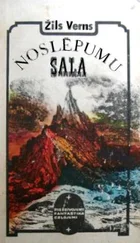No. There was no going back. I had known that when I lifted the rusty nail and stabbed it into Fishface’s neck. That part of my life was over.
I breathed hard, and clenched and relaxed my face muscles. Self-pity could creep up on anyone, but I would not let it happen again.
A flickering readout caught my eye. Readouts were not supposed to flicker. Another flashed from 20.7 to 5 to 87 and back again. That made no sense at all. Then all the readouts went berserk.
I lifted the phone, tapped in Magyar’s call code. “This is station four, primary sector.” I had to shout over the trilling station alarms.
“What is it, Bird?”
“I have readout anomalies.”
“Which ones?”
“The whole bank. Going wild. Nothing makes any sense.” Magyar did not reply immediately. She probably did not know what to do. “I need your authorization to cut the flow to the secondary sector.”
“But we don’t know that there’s anything wrong with our stream…” She sounded scared.
“We don’t know that there isn’t, either, and they don’t have the sensors we do.”
“It’s probably computer failure. Or maybe the monitors have gone down because of backflow. Flooding.”
“The flood warning didn’t go off We have to—” I broke off. Judging from the entire bank of instruments going crazy, it probably was simple computer failure. There was another way. “Look, I think there’s a way I can cut the stream temporarily and divert it to the holding tanks. Fifteen minutes won’t do anyone any harm. Secondary sector might not even notice. And I can take some readings manually, if you have a handheld photoionization detector around.”
There was a moment of silence. “There’s one in the locker that’s about knee height. In front of you. Get me your results ASAP.”
The PD turned out to be an old-fashioned portable of a kind I had not seen since I was a child. It was calibrated in parts per trillion. I lugged the case out of the influent bunker and along to my trough. It took me a while to remember how to assemble it. Thigh-deep in water, I hoped I would not stumble into one of the irregular gouges the rake had formed in the gravel. With the weight of the PD I would overbalance and I had no barrier protection for my face. The machine bleeped softly in my hand. Everything looked good so far.
It was full dark outside now, and the water, under its surface of reflected bright white, looked black, like ink. If the lights here went out, I wondered, would I be able to see the stars reflected in the troughs only if someone went onto the roof and cleaned off years’ worth of grime.
Ten minutes later, when I waded out, Magyar was waiting, thumbs hooked in her belt.
“The readings are fine. Dead on normal.”
“Good.” I waited for her to say I told you so. The holding tanks would now have to be pumped out and cleaned. A lot of extra work for a shorthanded shift. She just nodded at the PD. “That’s not a handheld.”
“It’s all there was.”
“Looks heavy.”
“It’s not so bad when you’re in the water. And, anyway, it feels a lot lighter than they used to when I was thirteen.”
She gave me a strange look. “I’ll have to take your word for that.”
I pretended not to notice her surprise, but I was disgusted with myself. First self-pity, now nostalgia. It led to slips I could not afford.
Lore is nearly seven and a half. The family is staying with friends in Venezuela for a month or so over Christmas. Greta is there, too.
The only image Lore really has of her half sister, Greta, is grayness: gray hair, gray eyes, and a gray kind of attitude to life. She is almost always away somewhere looking after the family interests. She is much older, of course—twenty-five now—and Lore tends to treat her more like an aunt than a sister, partly because Greta, even when she’s around, seems so distant, withdrawn. Not unkind, just preoccupied with whatever it is that always makes her look stooped and check around corners before turning them. Lore has never seen her laugh, though sometimes she does smile. At those times Lore thinks she looks beautiful: her face stretches sideways a little, shortening it, taking away the grooves and hollows and shadows, changing it from gray to gold.
Lore’s most vivid memory of Greta has to do with the Dream Monster.
Lore is asleep on her stomach with the covers thrown off the bed—how she always sleeps in a hot climate—when suddenly she is woken up by the monster. It has her pinned down and is breathing hot fire on her neck and groaning like a beast. She shrieks, and pushes, and doors bang open down the corridor, lights come on, and she must have blanked out for a minute or two, or maybe she really was dreaming, because then Katerine is sitting next to her on the bed, still dressed, and Greta is in the doorway, with Oster pulling on pajama trousers.
“A dream,” Katerine is saying to Lore. She turns to Greta and Oster. “Just a dream.”
But Lore is still shaking and realizes she is crying.
“What is it?” Oster says, and kneels by the bed. He takes her hand. “If you tell me what you’re afraid of, we’ll fix it.”
“Wasn’t a dream,” she hiccoughs. She has to make them understand. “It was a monster.”
“Of course it was a dream, love,” Katerine says with a smile. “How could it have got in?”
“Through the door.”
Oster makes a shushing gesture at his wife. “A monster? Well, I don’t much like the idea of a monster being loose when we’re all trying to sleep, so you tell me all about him, and then we can keep a look out.” He ruffles her hair, which she carefully smooths down.
She knows he is humoring her, but it doesn’t matter, because at least he will listen. “It was big and heavy, only not heavy like a rock, heavy like…” She doesn’t know how to describe it. Heavy like the end of everything. “Very heavy, anyway. It made monster noises. And breathed hot air.” She shudders. That air had felt so bad, like the breath of something dead.
“Well, the solution seems easy enough. If it came through the door, we’ll give you a lock. A special lock that monsters can’t open. Only people. Will that do?”
She considers it, then nods. By this time, Katerine is looking at the time display on the ceiling. “It can wait until tomorrow. It’s past three already and I have that net conference at nine.”
Lore is not sure whether her mother is talking to Oster, or to Greta who is still and silent by the door, or to her. She turns a mute look of appeal to her father.
He sighs. “I’ll deal with it, Kat. You and Greta get to bed.” They do. “I think we’ll be lucky to find a lock at this hour. But there might be a place… Will you be all right on your own for half an hour?”
In answer Lore climbs down from the bed, puts on her slippers, and tucks her hand into his. He looks at her, then smiles. “Together it is, then.”
In the end, they take the lock from the pantry door. It is an old-fashioned thing, attached by magnet to jamb and door, the mechanism a crude combination lock. But when they get it onto her bedroom door, and Lore wraps the combination cylinder with her hand so that even Oster can’t see what number she chooses, she feels better. Oster tucks her up, kisses her forehead, and when the door closes behind him, she hears the satisfying click that means no one can ever come in here again until she rolls each of the white counters to its proper number.
She is getting dressed the next morning when Greta knocks at the door. She opens it proudly. Greta seems awkward. “Did you sleep better, later?”
Lore nods, then shows Greta her lock. Greta frowns. “This isn’t good enough.”
Читать дальше












